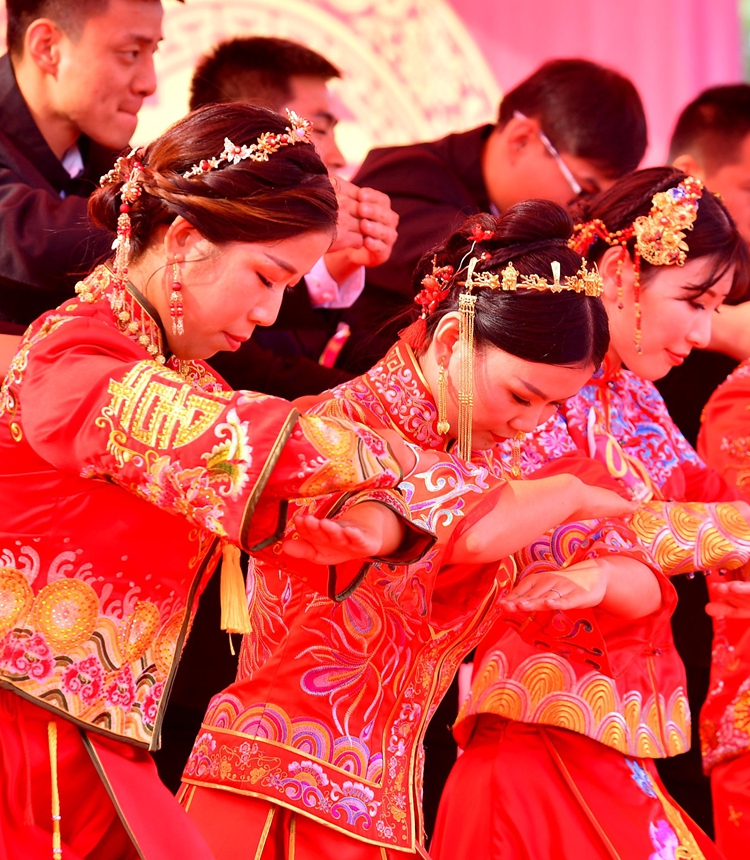
Twenty-two couples have a group wedding without a bride price in Shangqiu, Central China's Henan Province in September, 2018. Photo: VCG
As a traditional Chinese prerequisite for marriage, paying a "bride price" as a betrothal gift has a long history in China as a goodwill gesture between the couple and their two families. However, the "bride price" has risen from a token amount to very high levels, particularly in rural areas, which has undermined the nature of the traditional custom over the years. It has transformed from a symbolic gesture of goodwill to a significant financial burden for many families.
According to an article published by the Women's Federation in Jiangxi Province in February, 2023, the average "bride price" in the province was 130,000 yuan ($18,071.12), ranking fourth among the 31 provinces and autonomous regions documented. The data didn't include the additional "bride price" items such as gifts like jewelry, real estate and cars. Additionally, it's just the average. An article by Xinhua Daily Telegraph pointed out that in some areas of Jiangxi, "bride prices" without these additional gifts can reach as high as 380,000 yuan.
With local authorities' recent measures to curb exorbitant bride prices, some argue that encouraging low "bride prices" is acceptable, but it is unfair to provide priority in school enrollment as this affects the equality of education.
Others raised question about the specific implementation of the rules of this policy. The county encourages bridegrooms-to-be to pay brides-to-be a "bride price" no more than 39,000 yuan when they get engaged. Yet whether this includes major assets such as real estate and cars hasn't been specified. The rules on how to determine the amount of a "bride price" remains unclear as well.
Some domestic media also joined the discussion by publishing opinion pieces, asking the question, "Wouldn't this be an indirect punishment for the children of couples who paid a high bride price?" Some reasoned that while the policy makers have their hearts in the right place, prioritizing certain groups in education inevitably encroaches on the legitimate rights and interests of others. The exorbitant "bride price" originates from the parents, so children shouldn't be punished for actions that are not their own.
In education, equality for all should always be a priority, and fairness should come first at all times, several opinion pieces argued.
On Tuesday, an official of Chongyi county told the Beijing News that they have been receiving inquiries about the measures, emphasizing that it is not a mandatory regulation but rather a form of incentive advocating for "no bride price" or "low bride prices." The initiative is currently led by multiple departments and is being trialed for one year.
In recent years, many regions in Jiangxi are stepping up campaigns to address the problems of excessive "bride prices" especially in rural areas, and they have been advocated by more and more young couples, especially those who are well-educated.
While the intentions behind promoting low or zero "bride price" are noble, the focus should be on addressing the root causes of inflated bride prices rather than introducing measures that inadvertently discriminate against certain groups. In Chongyi's case, education should remain a level playing field, accessible to all regardless of their family's financial status or adherence to cultural customs.
While efforts to reform wedding customs and curb excessive bride prices are necessary, they must be accompanied by clear guidelines, transparent implementation, and a commitment to upholding principles of equality and fairness in all aspects of society, especially education. Only then can such initiatives truly promote positive cultural change and social harmony. To curb the high "bride prices" in some areas in China, we may still have a long way to go.



